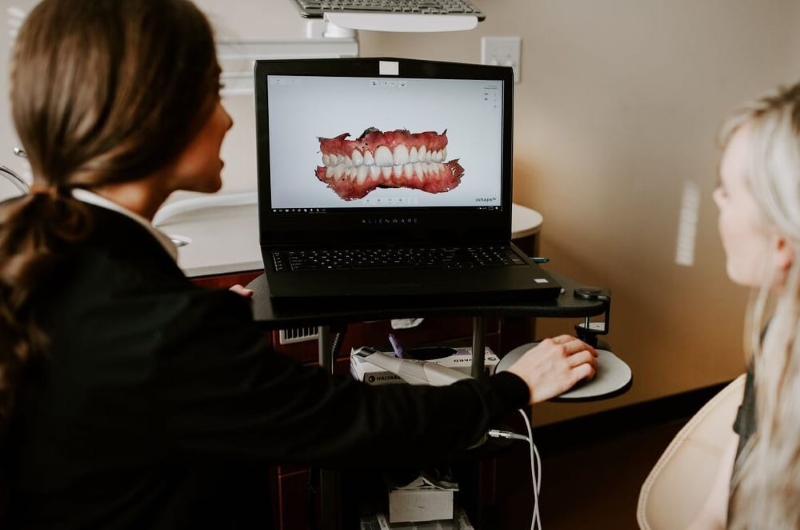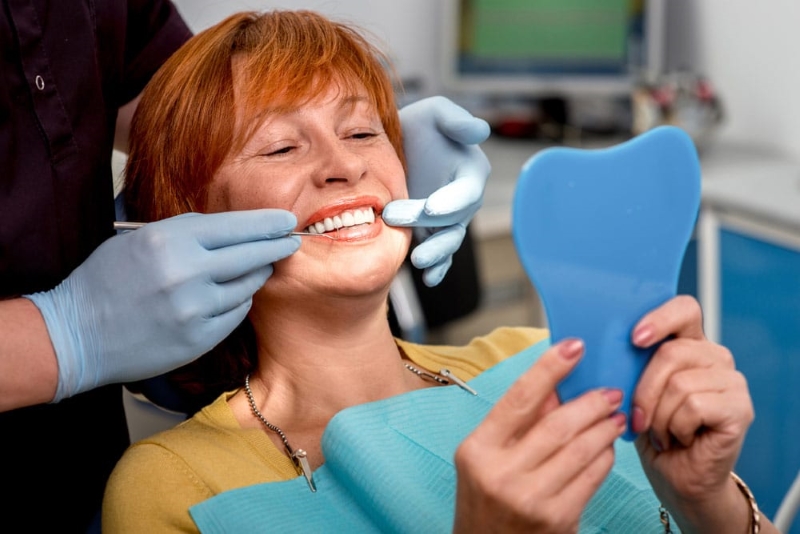Signs That You Are Experiencing Signs of Wear & Attrition on Your Teeth

We all want to maintain a healthy and attractive smile. But unfortunately, it’s not always easy. In addition to cavities, injuries, and disease, even our daily unconscious habits can cause damage to our teeth over time, negatively impacting our dental health. You may have heard terms like “wear” and “attrition.” But what exactly do these terms mean, and should you be worried about them?
What is dental wear?
In the dental world, “wear” describes slow and long-term depletion of the tooth structure. We all experience some wear over time. Normal dental wear can usually be observed as a thinning of the hard outer layer of our teeth called the enamel. Throughout our lives, our enamel sustains normal damage due to our daily habits such as eating, brushing, and talking.
While some wear and tear over time is normal, it can degrade the protective layer of our teeth, especially in extreme cases, making them more susceptible to decay, disease, and injury. Excessive wear can actually speed up the rate at which additional tooth structure is lost, so what may have taken 30 years to happen, can occur 5 times faster. This is one of the reasons why tooth-related illnesses become more common as we age.
There are three main types of tooth wear:
- Attrition – damage caused by ongoing contact between teeth
- Erosion – damage caused by acidity (diet or reflux/heartburn)
- Abrasion – damage caused by excessive or traumatic contact with external objects, such as toothbrushes with abrasive toothpaste.
What is dental attrition?

Dental attrition is a specific type of wear on your teeth. The term refers to the loss of chewing structures/surfaces of the teeth that results from direct tooth-on-tooth contact. It differs from other forms of wear, such as erosion and abrasion, in that it isn’t caused by contact with a foreign substance or object. Instead, it’s caused by the impact and friction that results from your teeth touching one another.
Mild attrition is considered a normal part of the aging process. We all experience this type of wear slowly over time due to normal chewing, biting, and talking. However, excessive grinding and clenching (bruxism) can significantly increase and accelerate the damage, leading to more serious problems.
Causes of wear and attrition on your teeth
Some people experience significantly more dental wear than others. There are a number of things that can worsen the damage caused by attrition and other forms of wear, including:
- Drinking acidic juices or carbonated soft drinks
- Tooth-to-porcelain crown contact
- Overly vigorous tooth brushing
- Nail biting
- Eating crunchy or overly chewy foods
- Chewing gum
- Sleep disorders such as bruxism (teeth grinding)
- Stress or anxiety
While there are a variety of factors that can contribute to wear on the teeth, the leading cause of abnormal dental wear is grinding and clenching during sleep or absent-mindedly during the day. This is a very common problem, and research indicates that people who experience high levels of stress and other negative emotions are more likely to suffer from bruxism.
Symptoms of wear and attrition on your teeth
Being able to notice changes in our dental health is a great way to catch potential problems early on and start an effective prevention and treatment plan. Some of the most common symptoms of wear and attrition include:
- Tooth pain
- Shortening or flattening of the teeth
- Changes in tooth shape
- Discoloration
- Sore gums
- Tooth sensitivity
- Damaged fillings
- Misaligned bite
- Headaches
- Tooth cracks or chips
Treatments for dental attrition and wear

If you’re experiencing symptoms of wear and attrition, or if you suspect you grind your teeth or clench your jaw during your sleep, it’s important to schedule an appointment as soon as possible. We will examine your teeth for signs of wear and attrition and recommend treatments and/or prevention strategies.
These may include:
- Behavioral changes, such as using a more gentle toothbrush, a non-abrasive toothpaste, or staying away from foods and drinks that may be causing or contributing to the problem
- Wearing a mouthguard to bed in order to prevent you from clenching and grinding your teeth while you sleep
- Strategies for managing stress, since bruxism is often caused or worsened by chronic stress and anxiety
Dental procedures to restore the health and appearance of your smile, which may include veneers, crowns, or full mouth rehab depending on your specific situation
Are you suffering from severe tooth wear? Advanced Dentistry can give you the expert care you deserve!

At Advanced Dentistry, we take a personalized, comprehensive approach to dental care. As prosthodontists, we work from the gums up, fixing smiles damaged due to concerns like wear and attrition. Our compassionate and experienced team is committed to working closely with patients from all walks of life to help them improve the form, health, and function of their teeth and gums.
Contact us today to schedule your appointment!
